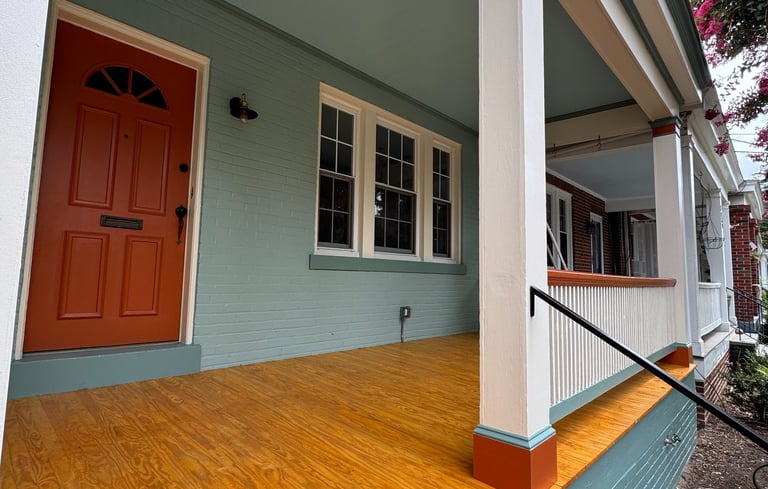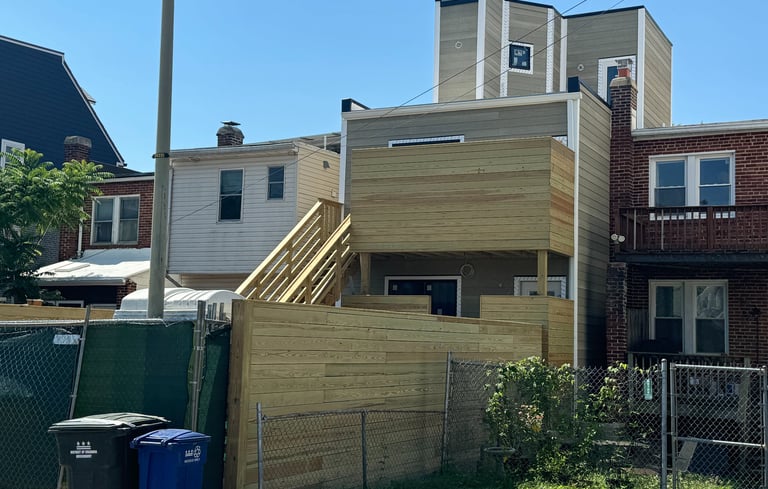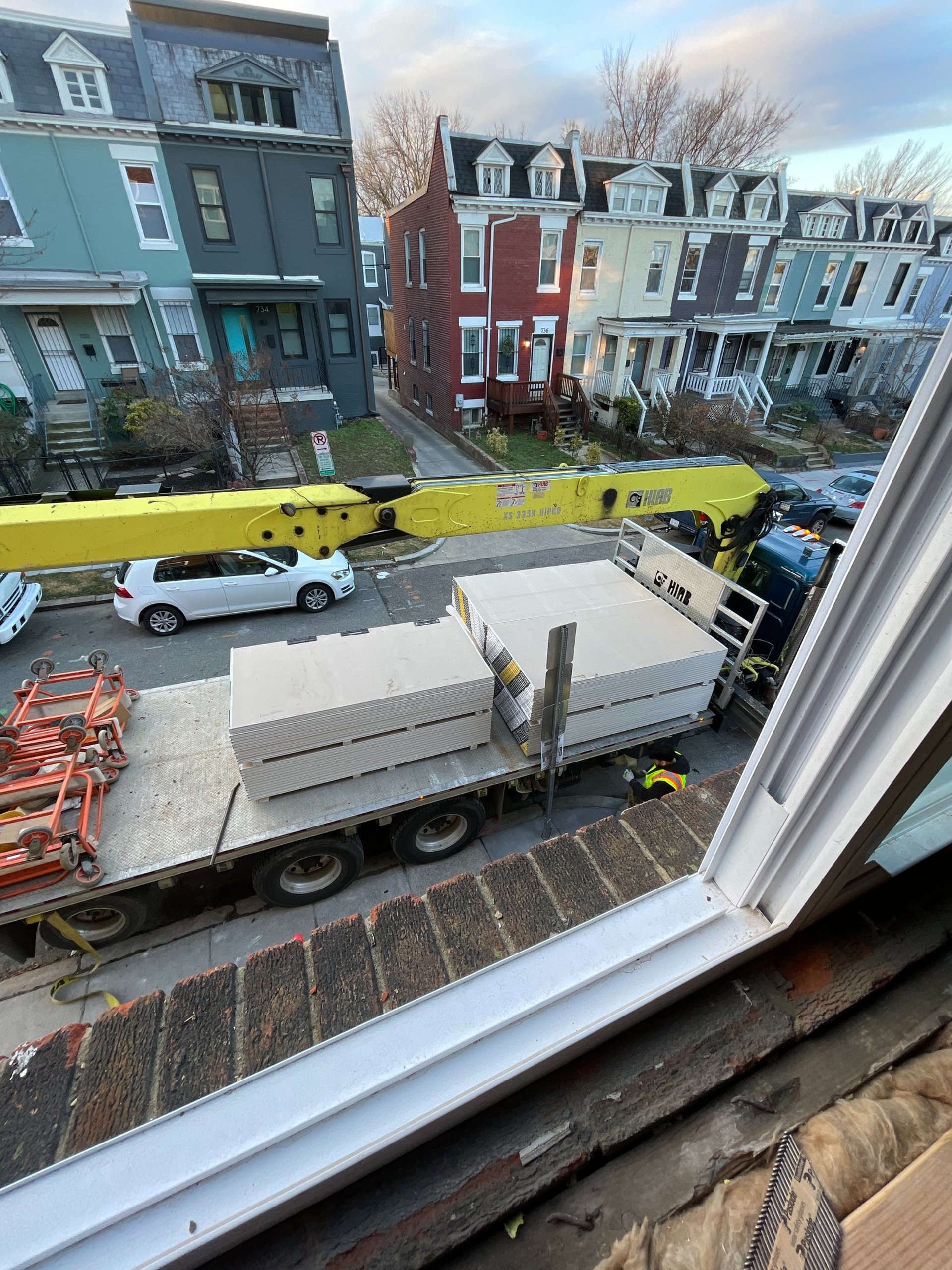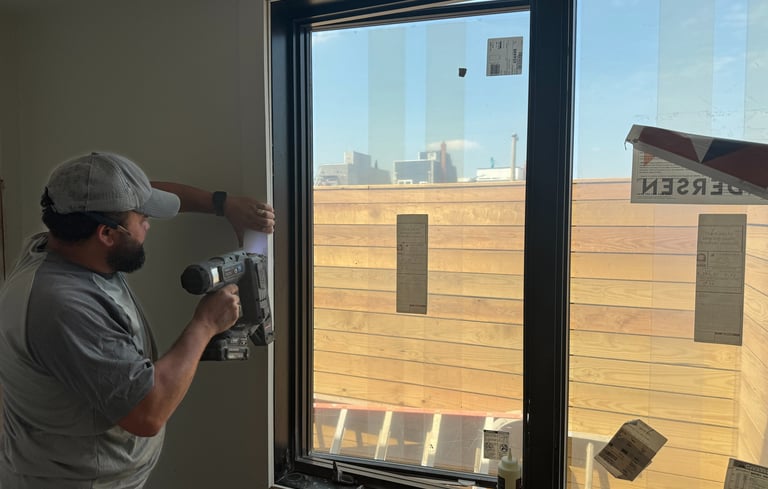Professional Construction Site Excavation Services in Washington DC
Construction site excavation in Washington DC isn't just about moving dirt. You're dealing with a city where George Washington's original street grid meets modern infrastructure demands, and every shovel of earth could reveal anything from Civil War-era foundations to fiber optic cables installed last month.
BBCDC Construction & General Contractors has spent years learning these lessons the hard way. We've hit our share of unmarked utilities, navigated permit offices that close unexpectedly, and figured out how to squeeze a backhoe down Dumbarton Street without taking out parked cars.
That experience matters when your project timeline can't afford surprises.
Why DC Excavation Demands Local Knowledge
Georgetown's charm comes with a price—utilities that predate most mapping systems and foundations that weren't built with modern codes in mind. Try explaining to your client why their basement renovation just uncovered a 1920s coal chute that nobody knew existed.
We've been there. Multiple times.
The soil conditions change dramatically across DC. Clay deposits near the Potomac River behave differently than the sandy areas closer to Rock Creek. A contractor from suburban Maryland might know excavation, but they won't anticipate how DC's unique geology affects foundation stability.
Your project deserves contractors who've learned these distinctions through direct experience, not just textbook knowledge. We serve the entire Washington Metropolitan Area because these geological patterns extend into Montgomery County, Arlington, and Prince George's County—each with its own quirks.
Our broader construction services reflect this regional understanding across the DMV area


What We Actually Do (And How We Do It)
Foundation Work That Accounts for Reality
Row house renovations in Dupont Circle taught us that "standard" foundation depths don't exist in DC. Every property tells a different story. Victorian-era builders used whatever materials they could source, and subsequent renovations added layers of complexity that won't show up on any survey.
We approach foundation excavation by assuming complications rather than hoping they won't appear. This mindset has saved our clients thousands in change orders and weeks of delays.
Historic properties require even more caution. Georgetown's preservation requirements aren't suggestions, and DCRA reviews every deviation from approved plans. We've developed relationships with preservation specialists who help navigate these requirements before problems develop.
Utility Coordination (The Real Challenge)
Miss Utility marks are helpful until you realize they're accurate to within several feet, and "several feet" matters when you're working next to a 12-inch water main. DC Water's records improve every year, but older neighborhoods still hold surprises.
We've learned to budget extra time for utility coordination, not because we're inefficient, but because the alternative—hitting an unmarked line—costs everyone more money and time.
Pepco's electrical infrastructure deserves special mention. The company's been upgrading systems throughout DC, but plenty of older lines remain active without appearing on current maps. A cautious approach to excavation near electrical infrastructure isn't overcaution; it's basic safety.
Drainage Solutions That Last
DC's stormwater management requirements keep evolving, partly because climate change has made traditional drainage calculations inadequate. The 100-year flood projections your grandfather used don't match current weather patterns.
We integrate drainage planning with excavation from the beginning rather than treating it as an afterthought. This approach costs slightly more upfront but prevents the expensive remediation work we've seen too many contractors attempt after the fact.
Rock Creek's watershed affects drainage throughout Northwest DC, while properties near the Anacostia River face different challenges. These aren't academic distinctions—they determine what drainage solutions will actually work.
Our Credentials (And Why They Matter)
EPA Lead-Based Paint certification (#NAT-F254732-1) isn't optional for DC renovation work—it's required law. Contractors who don't understand lead-safe work practices create liability for everyone involved, including property owners.
Our DC License (#410521000429) represents more than regulatory compliance. It demonstrates that we've maintained good standing with local authorities through multiple permit cycles and inspection processes.
DBE and CBE certifications recognize our participation in DC's economic development initiatives. These aren't just bureaucratic designations; they represent relationships built through successful project completion and community involvement.
SBE and LBE status reflects our understanding of local business networks and procurement processes. Large developers and institutional clients often prefer working with contractors who understand these systems.
Visit our homepage for additional information about our company background and project experience.


Where We Work (And What We've Learned)
DC Neighborhoods Each Tell Different Stories
Capitol Hill's soil conditions vary significantly between blocks, partly because the original development happened over several decades using different construction methods. What works for excavation on C Street might not apply to Pennsylvania Avenue.
Adams Morgan presents unique challenges because the neighborhood sits on varied topography. Excavation near 18th Street requires different approaches than work closer to Rock Creek Park, even though they're only blocks apart.
Shaw's ongoing development means you're often working adjacent to both historic structures and brand-new construction. Coordinating excavation activities while protecting neighboring properties requires careful planning and execution.
Logan Circle's Victorian-era infrastructure affects every excavation decision. These aren't just aesthetic considerations—original utility placements follow patterns that modern contractors don't always anticipate.
Regional Work Extends Our Experience
Montgomery County's suburban development patterns create different excavation challenges than DC's urban density. Larger lot sizes allow more flexibility, but soil conditions and utility placement follow different logics.
Arlington County's ongoing development near Metro stations means excavation projects often involve coordination with transit authority requirements. These relationships take years to develop and maintain.
Prince George's County encompasses everything from rural properties to dense suburban development, each requiring excavation approaches adapted to local conditions and regulations.

Equipment That Fits DC's Reality
Compact excavators aren't just convenient for DC work—they're often required. Many neighborhoods have streets that barely accommodate two-way traffic, let alone construction equipment.
We've invested in machinery designed for urban environments because suburban-sized equipment simply won't fit where much of our work happens. This isn't just about convenience; it's about being able to complete projects efficiently.
Safety requirements for pedestrian-heavy areas exceed standard construction protocols. DC Department of Transportation coordinates with us on traffic management, but foot traffic requires constant vigilance throughout project duration.
Environmental compliance standards in DC reflect both federal and local requirements. We exceed minimum standards because the alternative—remediation after problems develop—costs significantly more.
Regulatory Navigation (Learned Through Experience)
DCRA's permitting process improves steadily, but complex projects still require patience and thoroughness. We've learned which submission details prevent delays and which inspectors prefer specific documentation formats.
Historic district approvals involve multiple review stages that can extend timelines significantly. Georgetown, Capitol Hill, and other protected areas each have review boards with different priorities and timelines.
Building code compliance extends beyond excavation to include how our work integrates with broader construction activities. We coordinate with other trades from the beginning to prevent conflicts that emerge during later construction phases.


Getting Started on Your Project
Excavation projects in DC benefit from early consultation because site-specific factors affect both timeline and costs. We provide thorough assessments that address your property's unique conditions and regulatory requirements.
Contact us at (202) 350-0344 to discuss your specific excavation needs. Our team at 3418 13th St NW, Washington, DC 20010 responds promptly and provides detailed project evaluations.
Professional excavation services require contractors who understand both technical requirements and local conditions. When you're ready to move forward with excavation that prioritizes quality, safety, and regulatory compliance, we're prepared to deliver results that meet your expectations.
EPA LEAD-BASED PAINT RENOVATION, REPAIR, AND PAINTING ACTIVITIES #NAT-F254732-1
DISADVANTAGED BUSINESS ENTERPRISE (DBE)
DC CERTIFIED BUSINESS ENTERPRISE (CBE)
CERTIFICATION NUMBER: LSD34313092025
SMALL BUSINESS ENTERPRISE (SBE)
LOCAL BUSINESS ENTERPRISE (LBE)
DC LICENSE # 410521000429
CAGE CODE 8MRD4
MD MHIC 6178021
SERVING: Adams Morgan, DC, American University Park, DC, Bellevue, DC, Berkeley, DC, Bethesda, MD, Bloomingdale, DC, Brightwood, DC, Brightwood Park, DC, Brookland, DC, Burleith, DC, Buzzard Point, DC, Capitol Hill, DC, Cathedral Heights, DC, Chevy Chase, DC, Chinatown, DC, Cleveland Park, DC, Columbia Heights, DC, Crestwood, DC, Dupont Circle, DC, Eastern Market, DC, Eckington, DC, Edgewood, DC, Foggy Bottom, DC, Forest Hills, DC, Fort Totten, DC, Foxhall, DC, Friendship Heights, DC, Georgetown, DC, Glover Park, DC, H Street Corridor, DC, Hill East, DC, Ivy City, DC, Kalorama, DC, Kent, DC, Kingman Park, DC, LeDroit Park, DC, Logan Circle, DC, Manor Park, DC, McLean Gardens, DC, Michigan Park, DC, Mount Pleasant, DC, Navy Yard, DC, NoMa, DC, Observatory Circle, DC, Palisades, DC, Penn Quarter, DC, Petworth, DC, Potomac, MD, Rockville, MD, Shaw, DC, Shepherd Park, DC, Silver Spring, MD, Sixteenth Street Heights, DC, Southwest Waterfront, DC, Spring Valley, DC, Takoma, DC, Takoma Park, MD, Tenleytown, DC, The Wharf, DC, Trinidad, DC, U Street, DC, Union Market, DC, Van Ness, DC, Wesley Heights, DC, West End, DC, Woodley Park, DC, Woodridge, DC
HOURS
Monday: 8:00 AM – 8:00 PM
Tuesday: 8:00 AM – 8:00 PM
Wednesday: 8:00 AM – 8:00 PM
Thursday: 8:00 AM – 8:00 PM
Friday: 8:00 AM – 8:00 PM
Saturday: 8:00 AM – 8:00 PM
Sunday: Closed
COPYRIGHT BRANDS BUILD CULTURE DC, LLC. 2025
ALL RIGHTS RESERVED.
